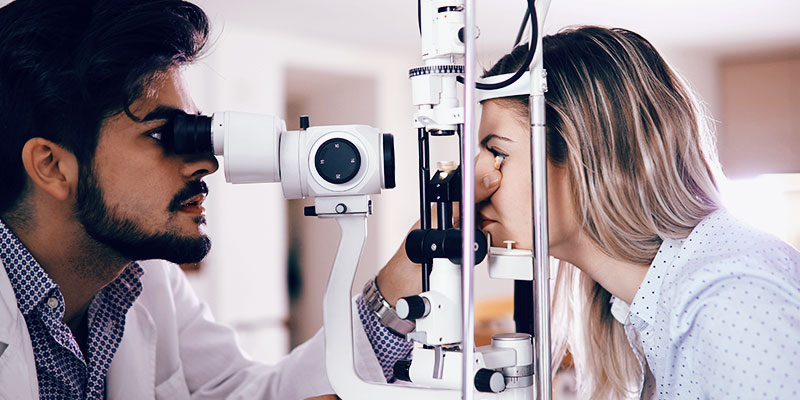Eye care in the new age is a bit of a process with the new tech
Ophthalmology is a branch of medicine and surgery that deals with the diagnosis and treatment of disorders of the eye An ophthalmologist is a physician who specializes in ophthalmology The credentials include a degree in medicine, followed by additional four to five years of residency training in ophthalmology Residency training programs for ophthalmology may require a one-year internship with training in internal medicine, pediatrics, or general surgery. Additional specialty training or fellowship may be sought in a particular aspect of eye pathology Ophthalmologists are allowed to prescribe medications to treat eye diseases.
Now you can see the better future
Optical coherence tomography is a medical technological platform used to assess ocular structures. The information is then used by physicians to assess staging of pathological processes and confirm clinical diagnoses. Subsequent OCT scans are used to assess the efficacy of managing diabetic retinopathy, age-related macular degeneration, and glaucoma.

Protect your eyes from dust and disease
The World Council of Optometry, a member of the World Health Organization defines optometrists as the primary healthcare practitioners of the eye and visual system who provide comprehensive eye and vision care, which includes refraction and dispensing, detection diagnosis and management of disease in the eye, and the rehabilitation of conditions of the visual system.
We’re ready to enhance your vision
Eye surgery, also known as ocular surgery, is surgery performed on the eye or its adnexa by an ophthalmologist. The eye is a fragile organ, and requires extreme care before, during, and after a surgical procedure. An eye surgeon is responsible for selecting the appropriate surgical procedure for the patient and for taking the necessary safety precautions An eye care professional is an individual who provides a service related to the eyes or vision. It is any healthcare worker involved in eye care, from one with a small amount of post-secondary training to practitioners with a doctoral level of education.
Facility provided
United States developed the ultrasound and mechanized irrigation and aspiration system.
United States is an ophtalmologist who currently serves as the senator from Kentucky.
Ophthalmologists are medical and osteopathic doctors who provide comprehensive eye care, including medical, surgical and optical care In the US, this requires four years of college, four years of medical school, one year general internship, three years of residency, then optional fellowship for 1 to 2 years typically 12–14 years of education after high school. An ophthalmologist can perform all the tests an optometrist can and in addition is a fully qualified medical doctor.
Ophthalmologists undergo extensive and intensive medical and surgical exams to qualify and entrance criteria to a training program is highly competitive. Some ophthalmologists receive additional advanced training or fellowship in specific areas.
Eye care
84%Specialist
91%Doctors
70%

A doctor of optometry attends four years of college, four years of optometry school, and then an optional one-year residency. Optometrists undergo extensive and intensive refractive and medical training mainly pertaining to the eye and the entrance criteria to attend optometry school are also highly competitive. An OD is fully qualified to treat eye diseases and disorders and specializes in optics and vision correction Permissions granted by an optometric license vary by location.
Orthoptists specialize in diagnosis and management of eye movement and coordination problems, misalignment of the visual axis, convergence and accommodation problems, and conditions such as amblyopia, strabismus, and binocular vision disorders, as outlined by the International Orthoptic Association They may assist ophthalmologists in surgery, teach orthoptic students, students of other allied health professions, medical students, and ophthalmology residents and fellows, act as vision researchers, perform vision screening, perform low vision assessments and act as clinical administrators.



